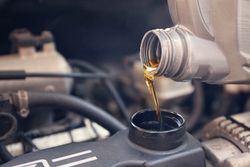Can You Use Kerosene Instead of Diesel in Farm Machinery?

As a farmer, you probably rely on a range of high-powered machinery to care for your land. Most of these machines run on diesel, but you may wonder if you can safely use kerosene as a substitute. While these fuels derive from the same base, they have different uses. The guide below explains what you need to know about substituting kerosene for diesel.
What’s the Difference Between Kerosene & Diesel?
Both of these substances are byproducts of crude oil created through heating and distilling. Kerosene is produced first when the oil is heated between 300 and 525 degrees, while diesel is extracted when the oil reaches between 400 and 650 degrees. Kerosene is lighter in weight and is therefore slightly less efficient than diesel. This is because it holds less energy. In older engines, mixing the two fuels was more common, but modern engines may risk damage if the incorrect fuel is used.
What to Know About Using Kerosene
The lubricity of kerosene is lower than diesel, which may put excess strain on the fuel pumps if they’re not equipped to handle the fuel. However, in some cases, the lower lubricity has its benefits, as kerosene is less prone to gelling in cold weather. Adding it to a diesel engine can thin it adequately during the winter months. Add no more than 10% kerosene to avoid lowering your fuel efficiency. As an alternative, consider the range of available diesel additives that can achieve a similar effect.
Whether you need diesel, kerosene, or heating oil for your home, the experts at Monroe Oil Company offer reliable delivery throughout the Greater Rochester, NY, area. For over a century, they’ve been the trusted fuel source for homeowners and businesses alike. To schedule a delivery, call (585) 244-4080. You can also learn more about their products on their website.
About the Business
Have a question? Ask the experts!
Send your question

